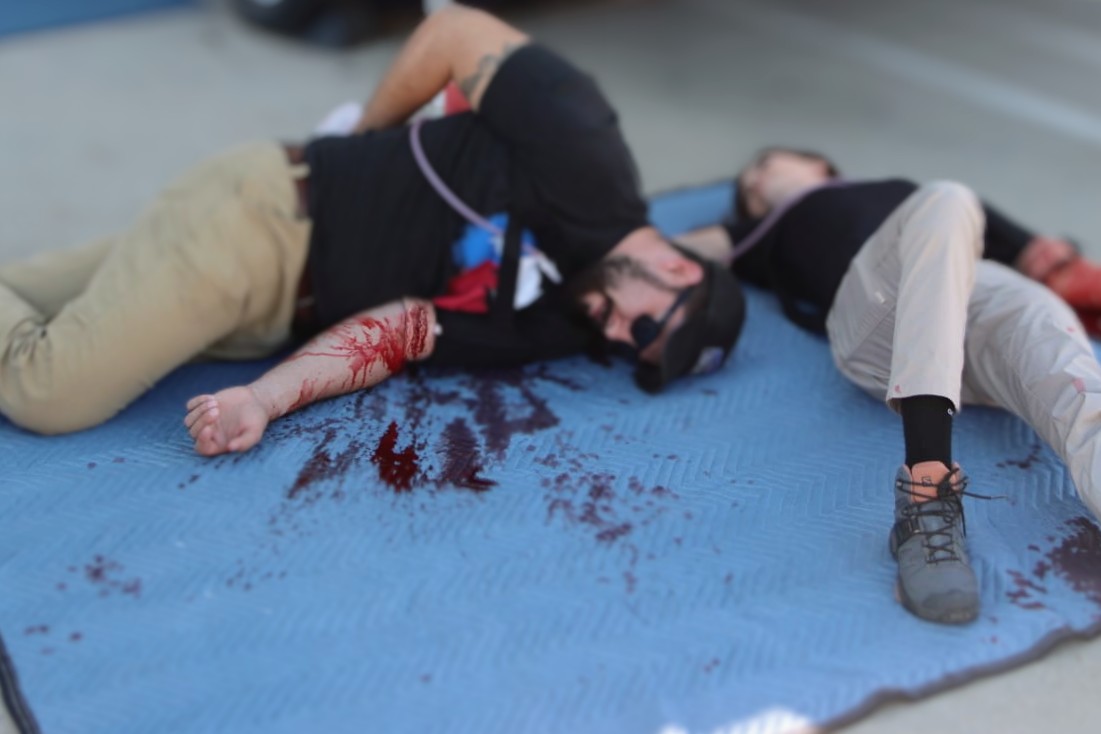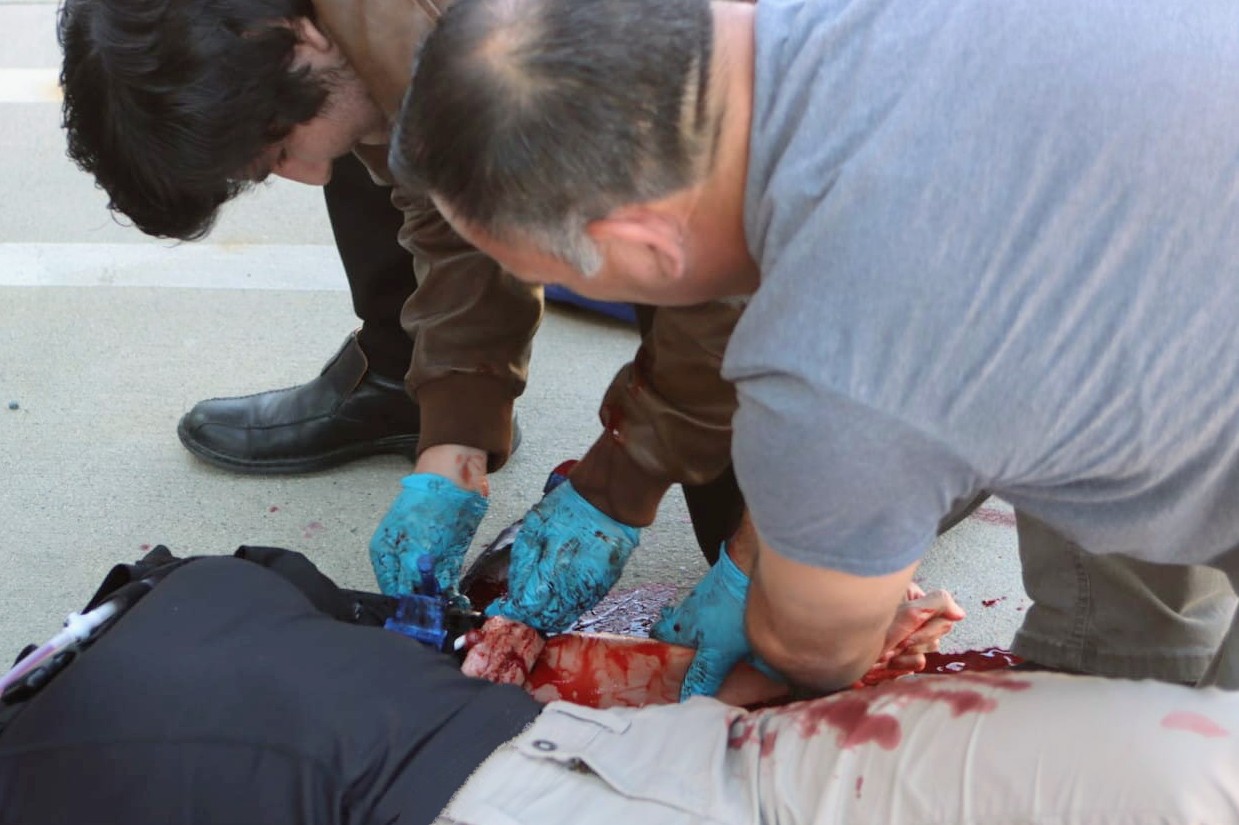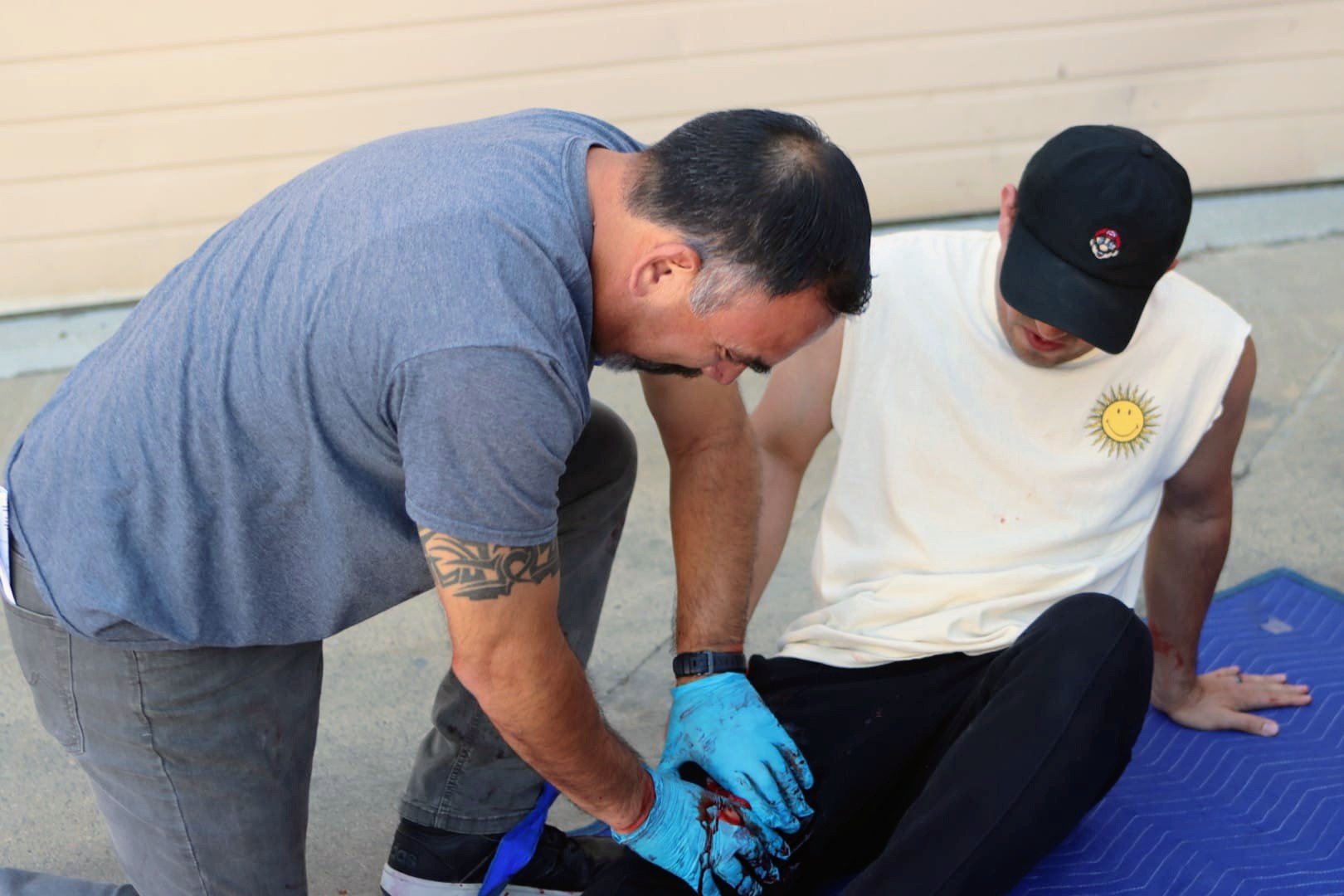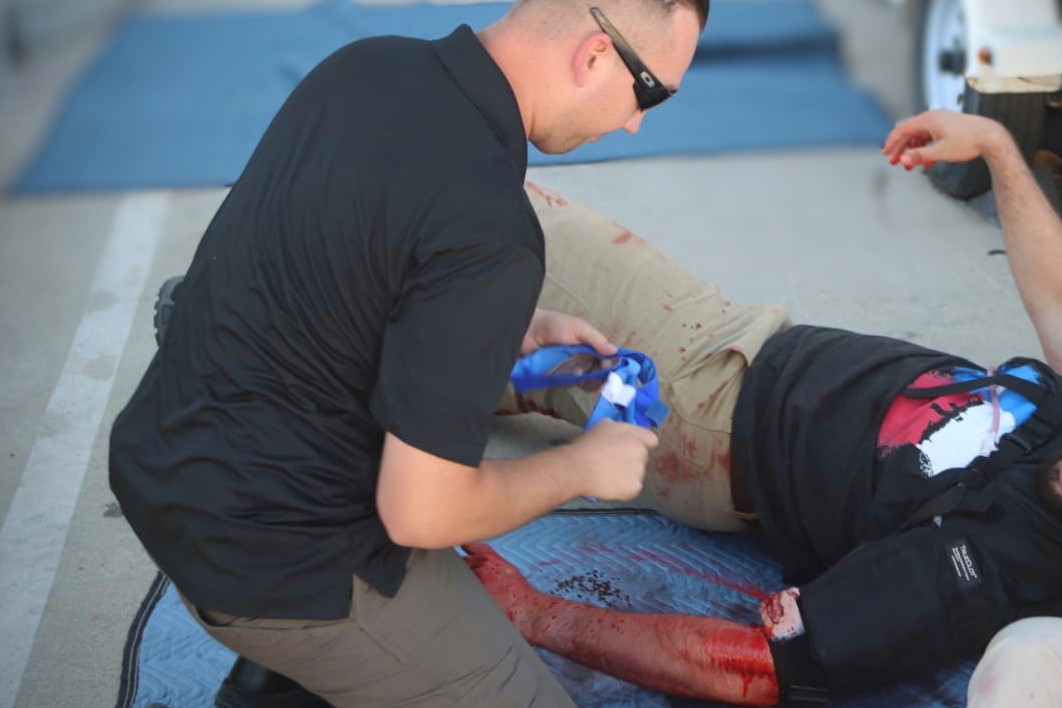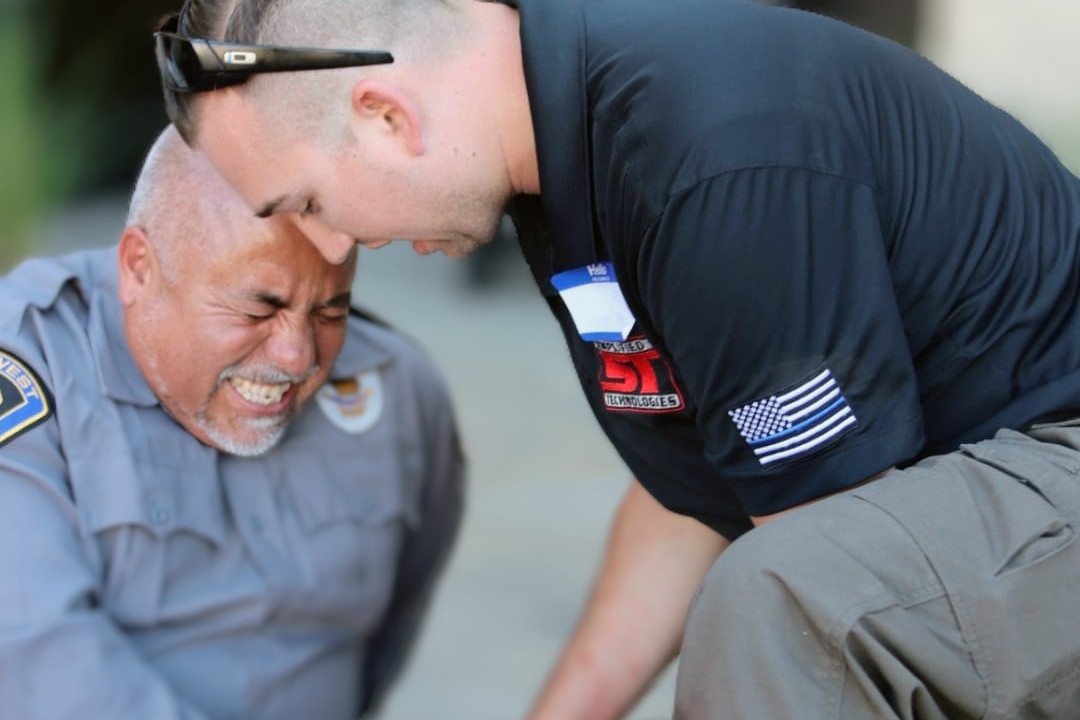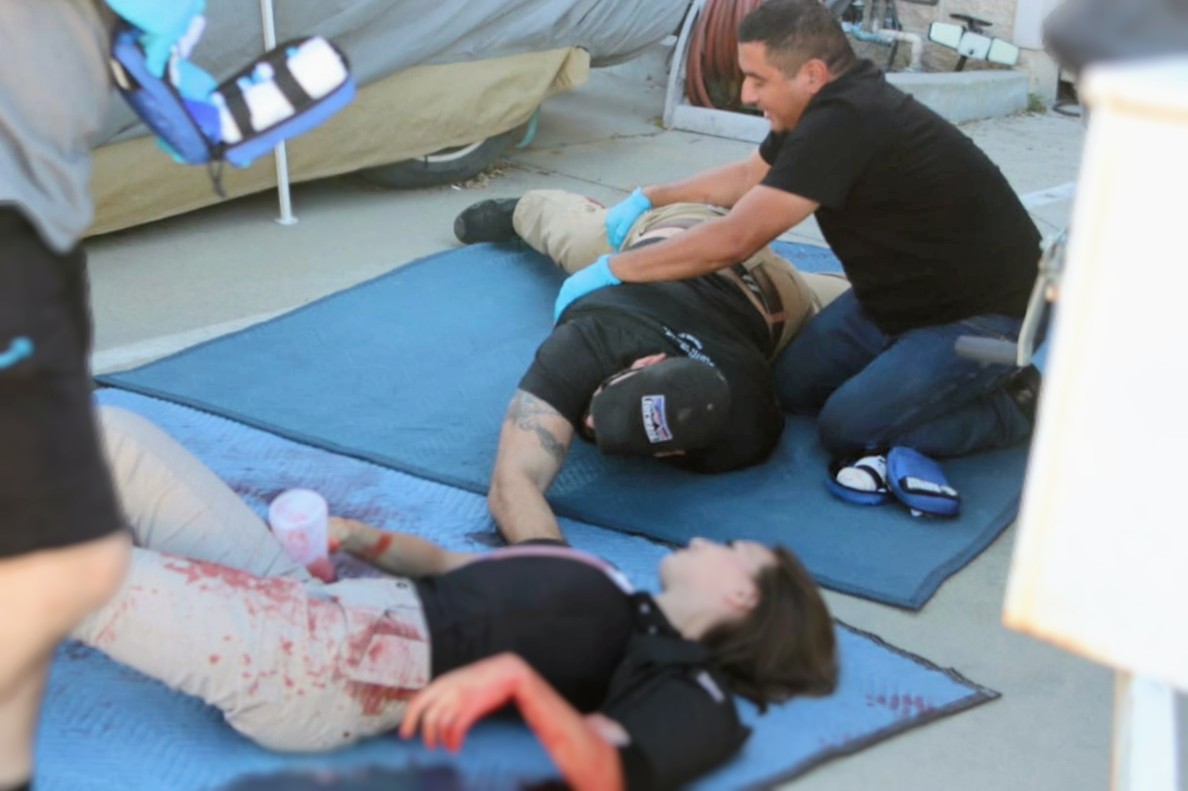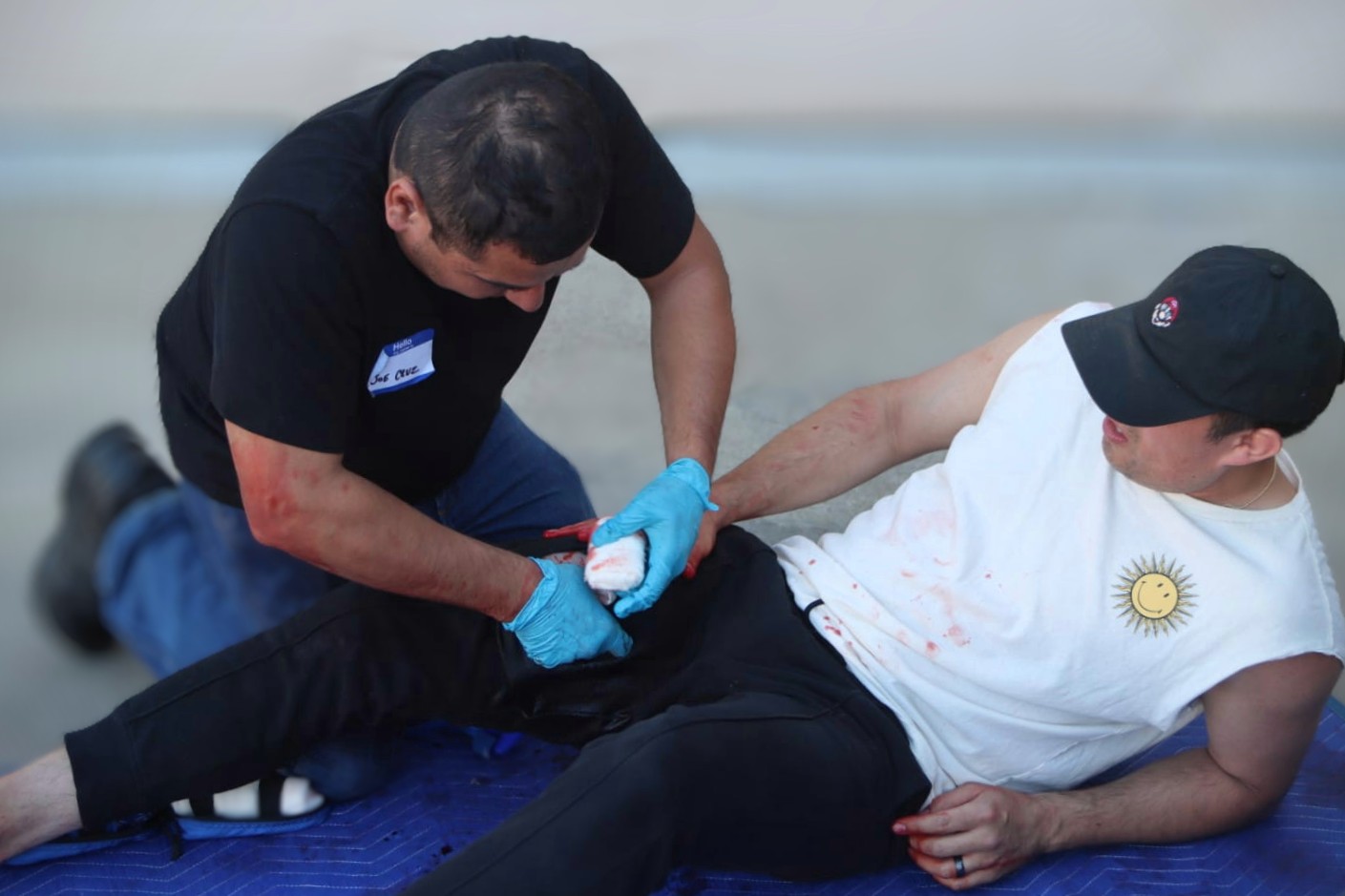TECC LEO and First Responders
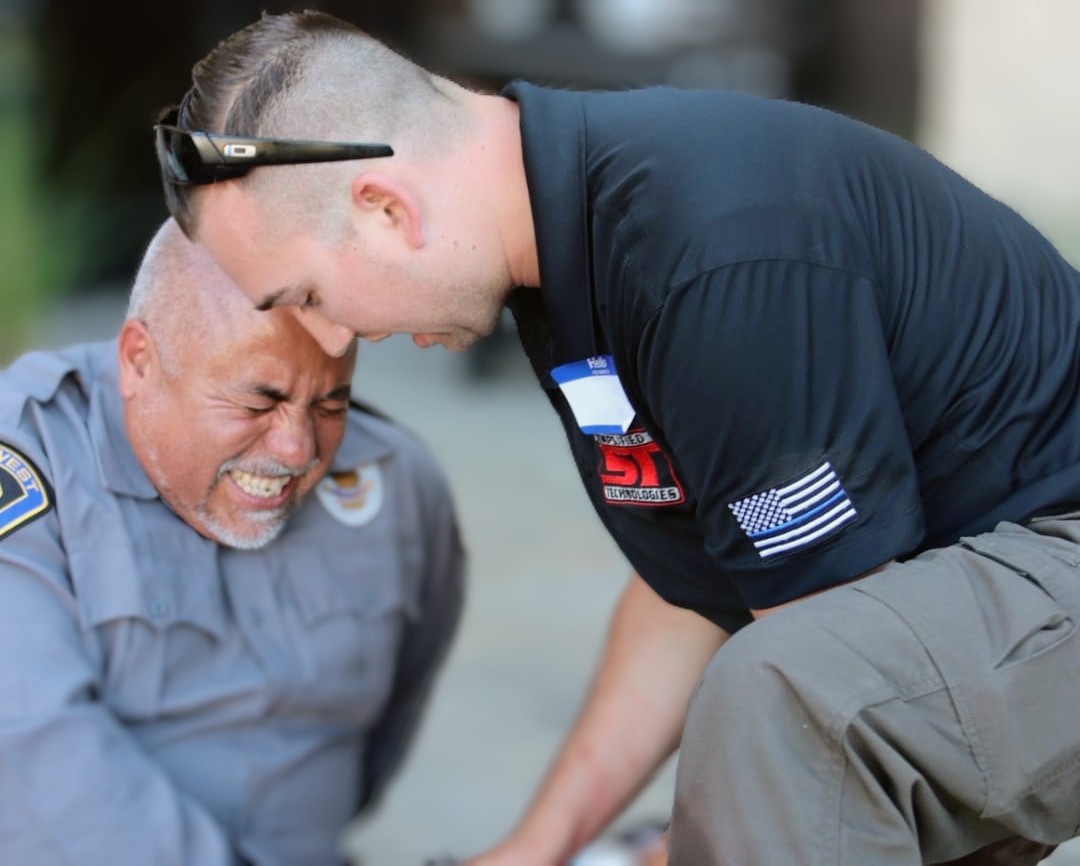
Tactical Emergency Casualty Care for Law Enforcement Officers and First Responders (TECC-LEO):
Tactical Emergency Casualty Care courses are geared towards military personnel, first responders, law enforcement, security personnel, and civilians.
This 8-hour classroom course was specifically designed for law enforcement officers and other non-EMS first responders. The course covers materials found in the 16-hour TECC provider course at a level appropriate for first responders. It includes 8 hours of content, which includes interactive lectures, skill stations, and patient simulations. Upon successful completion of the course, students receive a certificate of completion, a wallet card recognizing them as a TECC-LEO provider for 4 years.
Students will be trained on how to care for victims and themselves under high stress and dynamic environments. Students will be trained on the use of tourniquets, wound packing, chest seals, and bleeding control. Students will participate in a scenario training exercise with live application of bleeding control techniques on actors / role players.
CPR – First Aid is recommended prior to attending the course but not required.
For course eligibility please scroll down to the “Commonly Asked Questions”. For Medical Professionals: This course satisfies 8 hours of CAPCE credit for qualified participants.
TECC LEO Initial
1 Days | 8 Hours – $275
TECC LEO Renewal / Refresher
1 Days | 8 Hours – $175
TECC - Tactical Emergency Casualty Care - LEO First Responders
Part one: Classroom 5 hours:
TECC-LEO covers the three phases of tactical care and integrates parallel EMS nomenclature. The course focuses on MARCH assessment, hemorrhage control, non-invasive airway management, pediatric concerns, treating wounded first responders, threatening environments, drags, lifts, and carry techniques.
Part two: Scenarios – 3 hours
Students will practice self and partner tourniquet application, wound packing on wound simulators, and applying chest seals. Upon completing the skills portion, students will progress to live application of bleeding control interventions with role players simulating responding to a call out for casulaties. Students will identify the wounds, and apply the necessary intervention .
EQUIPMENT REQUIREMENTS
Students should be dressed in comfortable and professional attire.
Participants will be exposed to simulated blood during scenario training. Students should bring a change of clothes.
Participants will not be required to bring any equipment such as duty belts, weapons, or medical equipement. All training equipment will be provided. Active Duty LEO’s, military, and licensed armed personnel may carry during the classroom portions of the training, however, a STRICT no firearms or weapons policy will be enforced during scenarios. If armed, plan to have a storage plan during scenarios. Students will be provided access to the facilities safes to store firearms, if needed.
COMMONLY ASKED QUESTIONS?
Who can attend this course?
There are both open and closed courses.
Closed courses are restricted to Law Enforcement and Non Emergency first responders such as security officers, public safety officers, and others who work high traffic high risk areas.
Open courses are available to the public. If you click on the enrollment link, you will see our open courses. If you are not sure if you meet the eligibility to attend the course, call us at 310-650-6896 to request information on your eligibility status.
Do I need a current CPR and First Aid card to attend this training?
No, this is not required to attend. It is strongly encouraged and recommended to maintain a current CPR and First Aid card. We can assist with that certification if desired.
Why should I take TECC LEO over Stop the Bleed?
Stop the bleed is an excellent course. This is stop the bleed on steriods. Students will get more involved with bleeding control interventions, and the scenrios practiced will better prepare students for a real world emergency. It is easy to put tourniquets on when there is no blood, no panic, no stress. It almost feels like an entirely different skill when live scenarios are introduced. For this reason alone we reccomend even those with other stop the bleed and first aid training attend. From the Law Enforcement and Public Safety / First Responder perspective TECC will also discuss more involved decision making process’s.
Is this the same as the TCCC (Tactical Casualty Combat Care) taught to the military and Department of Defense?
No. This course is a derivative of the TCCC course, but there are differences in the courses. There are 3 primary differences between TECC and TCCC: Guidelines, terminology, and trauma cares operational focus.
TCCC was written by the military special operations community to specifically address the specificities and conditions surrounding combat operations. These guidelines are researched, developed, and written with the assumption that the patient is an otherwise healthy 18-45yo soldier and that the provider is working under the military defined scope of practice. The TCCC guidelines assume a military medical support system, military rules of engagement, and military legal precedent. While individual recommendations such as tourniquet use are valid, TCCC as a system has limited application in the civilian setting. The TCCC courses currently being taught were not intended for civilian application.
Simply put, TECC maintains all the medical principles of TCCC, and cuts out all the military specific aspects of the curricullum. This makes TECC an incredible course for civil authorities and anyone who works in a high risk enviornment.
Is this course designed for SWAT officers or street cops?
TECC has applications for ALL high risk operations, where there is a real and on-going risk to both the patient and provider. Examples of high risk operations include, but are not limited to:
- Active shooter response
- Wilderness medicine
- Confined space, rope and other technical rescue operations
- Law enforcement ‘officer down’ response
- SWAT medical support
- Response to explosive mass casualty
- All other mass casualty response
- Any profession with a likelyihood to encounter someone with a massive hemmorage, such as gunshot, stabbing, or accident.
What is MARCH?
MARCH is an acronym used for patient assessment: “Massive hemorrhage, Airway, Respirations, Circulation, Head injury/hypothermia”
What is CAPCE?
Commision on Accreditation for Pre-hospital Continueing Education. This course satisfies 8 hours of training for CAPCE.
Click below to view some images from the class.
Warning: The gallery below contains graphic images of medical training that depicts realistic wound simulations, bleeding, and trauma.
Why Southwest Training Center?

TRAINING MEETS OR FAR EXCEEDS THE BASELINE TRAINING STANDARDS YOU WILL GET AT OTHER TRAINING CENTERS.

HAVING TRAINING WILL HELP YOU IF YOU FIND YOURSELF IN COURT HAVING TO JUSTIFY YOUR EXPERIENCE.
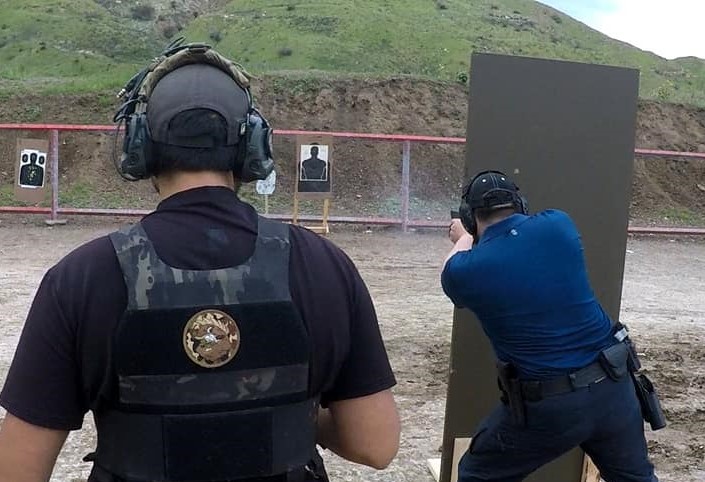
YOU MUST TRAIN FOR WHEN IT COUNTS.
Choosing Southwest Training Center guarantees you are training among the best in the industry.
Southwest Training Center
“Committed to Excellence”
LOCATIONS:
Classrooms:
10285 Glenoaks Blvd #6, Pacoima, CA, 91331


